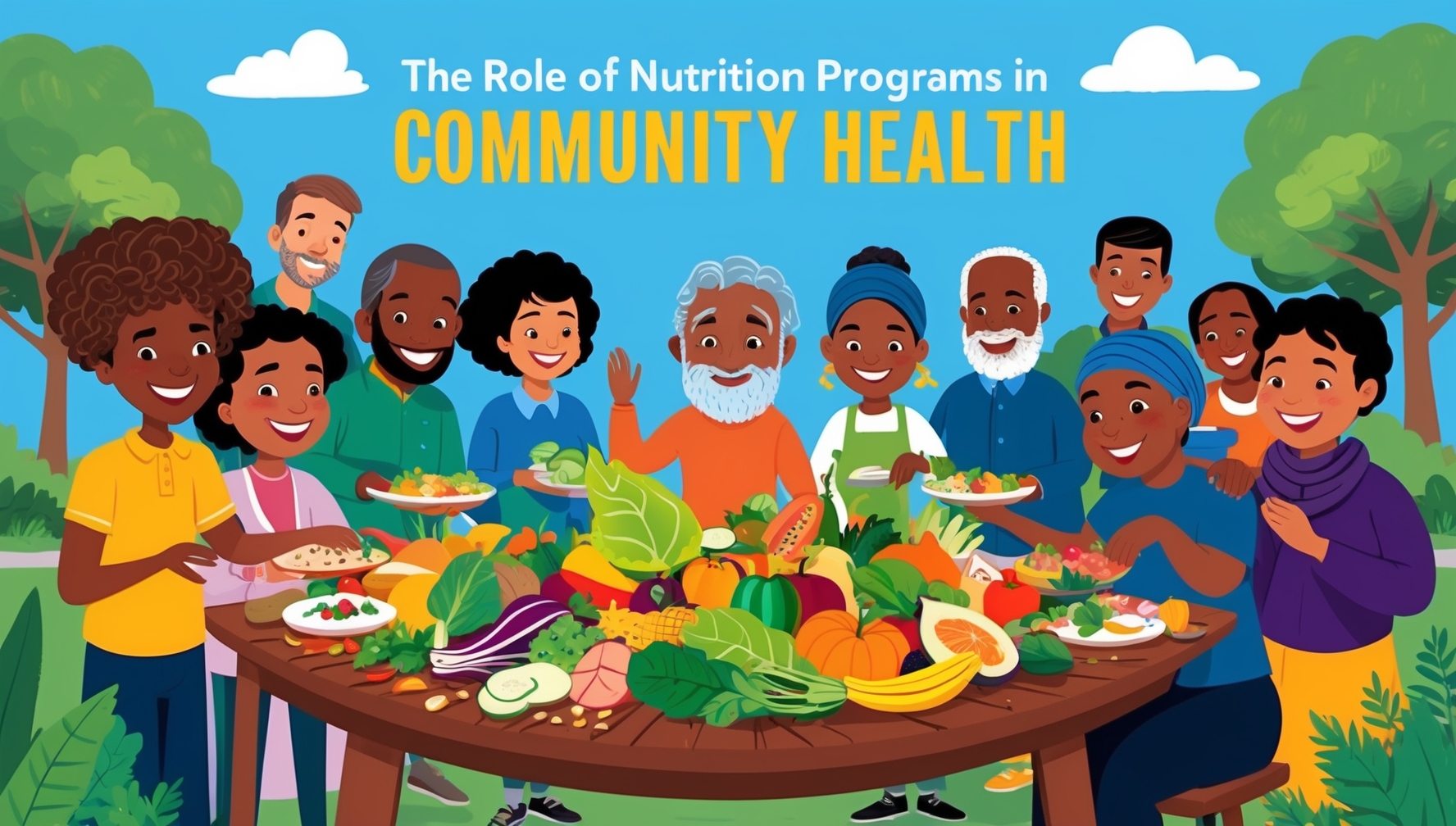Nutrition programs are pivotal in enhancing community health by promoting healthy eating habits, addressing food insecurity, and preventing chronic diseases. These programs play a vital role in improving overall well-being and fostering a healthier population. Here’s an in-depth look at the impact of nutrition programs on community health:
1. Addressing Food Insecurity
Providing Access to Nutritious Food: Nutrition programs help bridge the gap for individuals and families who lack access to healthy food options. Programs like food banks, community kitchens, and meal distribution services ensure that underserved populations receive essential nutrients.
Emergency Food Assistance: In times of crisis, such as natural disasters or economic downturns, nutrition programs offer emergency food assistance. This support helps stabilize communities and prevent malnutrition during challenging periods.
2. Promoting Healthy Eating Habits
Educational Workshops and Classes: Nutrition programs often include educational components that teach individuals about balanced diets, portion control, and the benefits of various nutrients. Workshops and cooking classes empower participants to make informed dietary choices.
Healthy Recipe Sharing: Programs frequently share nutritious recipes and meal planning tips to encourage healthy eating. This helps individuals and families incorporate more fruits, vegetables, whole grains, and lean proteins into their diets.
Support for Dietary Changes: Nutrition programs offer guidance and support for individuals seeking to adopt healthier eating habits, whether for weight management, diabetes control, or other health concerns.
3. Preventing Chronic Diseases
Chronic Disease Management: By promoting healthier eating patterns, nutrition programs help prevent and manage chronic diseases such as heart disease, diabetes, and hypertension. Education on low-sodium, low-sugar, and high-fiber diets can significantly impact disease prevention and management.
Screenings and Health Assessments: Some programs provide screenings for nutritional deficiencies and chronic conditions, offering early intervention and personalized dietary recommendations to improve health outcomes.
Community Health Initiatives: Nutrition programs often collaborate with other health initiatives to create comprehensive approaches to disease prevention, integrating diet with physical activity and other lifestyle factors.
4. Enhancing Quality of Life
Improving Physical Health: A balanced diet contributes to better physical health, including improved energy levels, better immune function, and healthier weight management. Nutrition programs support these outcomes by providing access to healthy food and dietary education.
Boosting Mental Well-being: There is a growing recognition of the link between nutrition and mental health. Programs that promote healthy eating can positively impact mental well-being, reducing stress, anxiety, and depression.
Fostering Community Engagement: Nutrition programs often involve community engagement activities, such as community gardens and cooking classes, that build social connections and foster a sense of community.
5. Supporting Vulnerable Populations
Programs for Children and Families: Nutrition programs aimed at children and families, such as school meal programs and WIC (Women, Infants, and Children) services, ensure that the most vulnerable populations receive adequate nutrition during critical developmental stages.
Elderly Nutrition Services: Programs designed for the elderly provide meal delivery services and nutrition education tailored to the needs of older adults, addressing specific dietary requirements and enhancing their quality of life.
Support for Low-Income Individuals: Programs targeting low-income communities offer essential support for individuals who may otherwise struggle to access healthy food options. This assistance helps reduce disparities in nutrition and health outcomes.
6. Evaluating and Enhancing Program Effectiveness
Monitoring and Evaluation: Regular assessment of nutrition programs is crucial to determine their effectiveness and identify areas for improvement. This includes evaluating participant outcomes, program reach, and resource utilization.
Feedback and Adaptation: Gathering feedback from participants and community stakeholders helps tailor programs to better meet the needs of the population. Adaptations may include adjusting program offerings, expanding services, or enhancing outreach efforts.
Building Partnerships: Collaborating with local organizations, healthcare providers, and policymakers strengthens nutrition programs and enhances their impact. Partnerships can lead to resource sharing, increased funding, and broader program reach.
7. Evaluate and Expand
Expand the Reach: Consider expanding the support group for mental health awareness to address additional mental health topics or to create specialized groups for different demographics. Use feedback from participants and community needs assessments to guide expansion efforts, possibly integrating community physical activity as a regular part of the support group.
Conclusion
Nutrition programs are fundamental to community health, addressing food insecurity, promoting healthy eating, preventing chronic diseases, and supporting vulnerable populations. By providing access to nutritious food, education, and support, these programs contribute to overall well-being and foster healthier communities.






